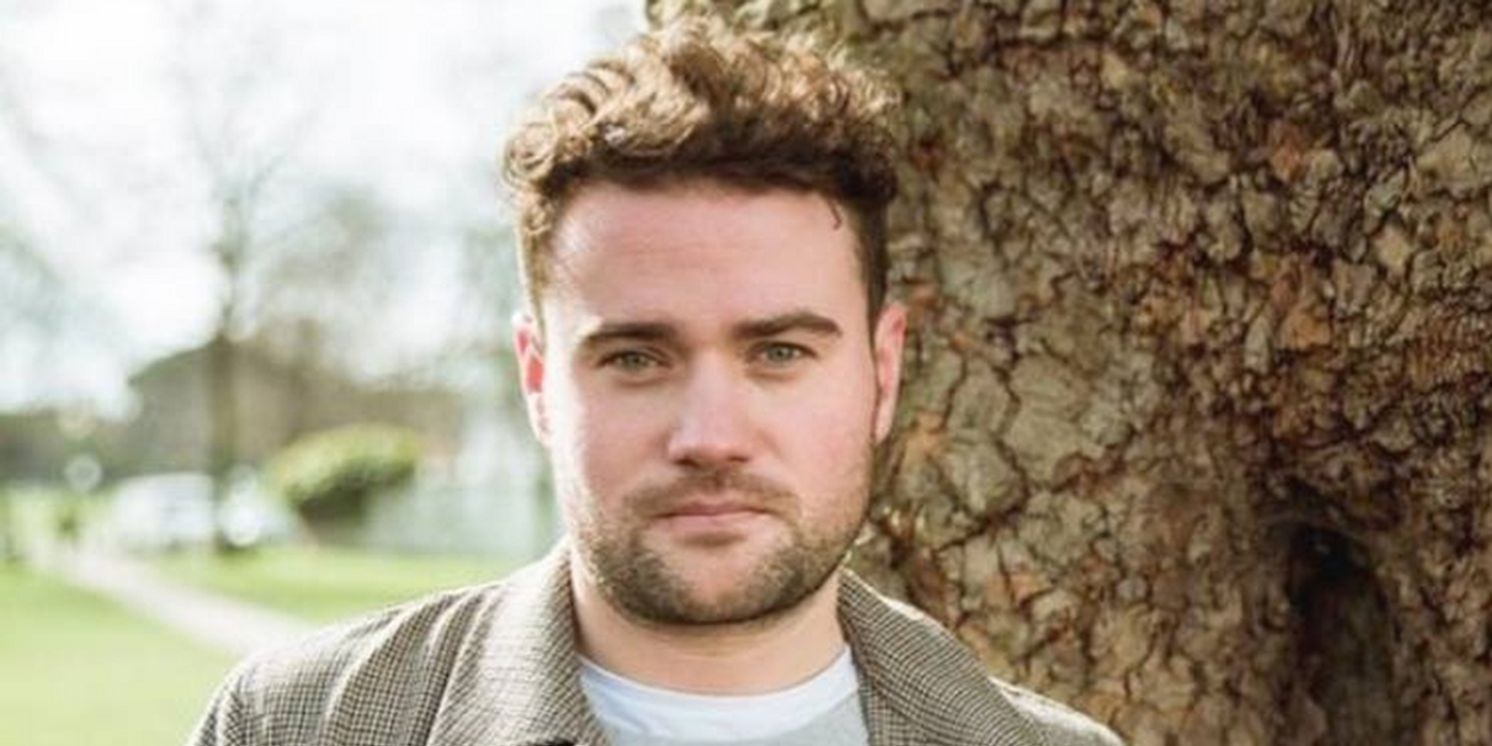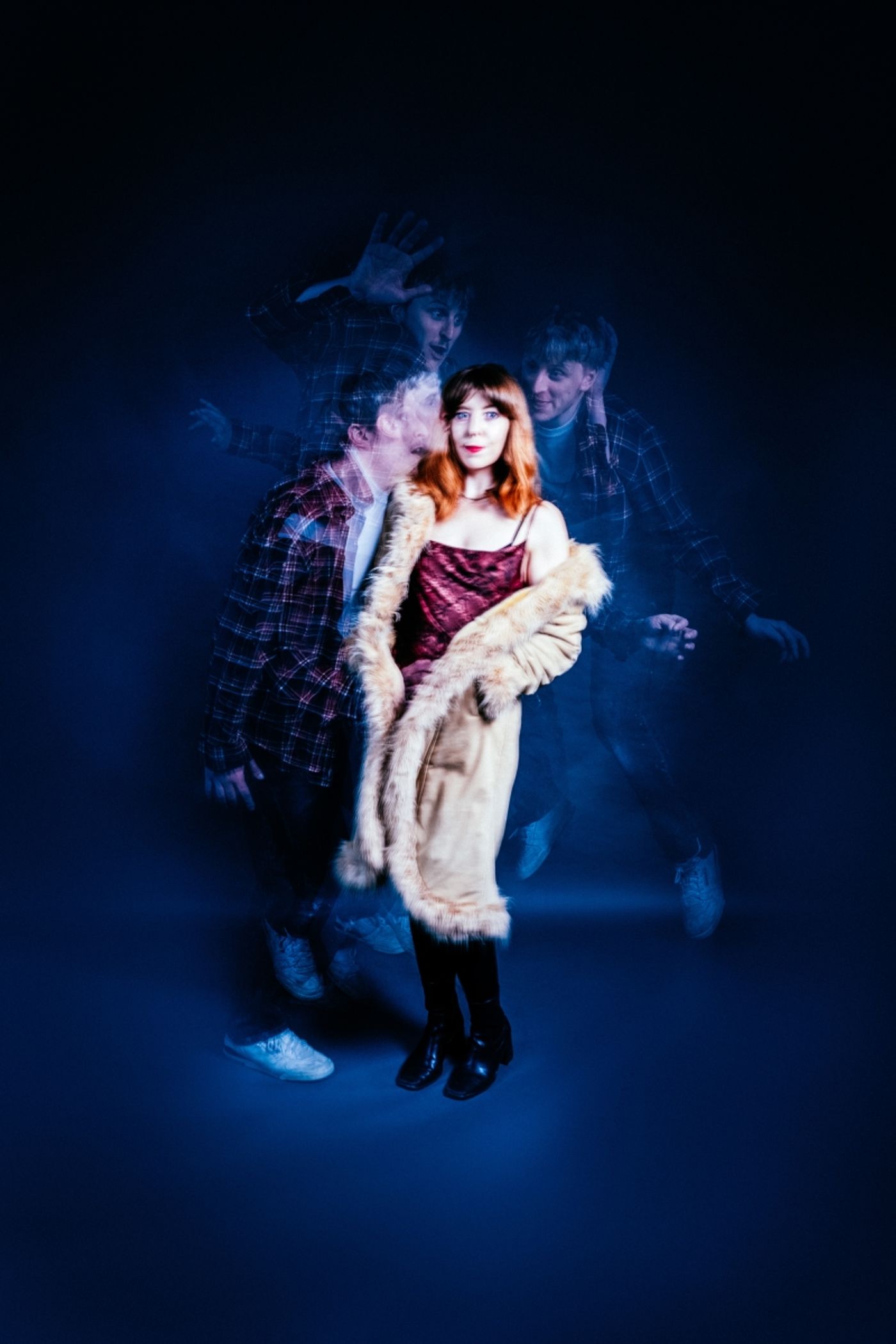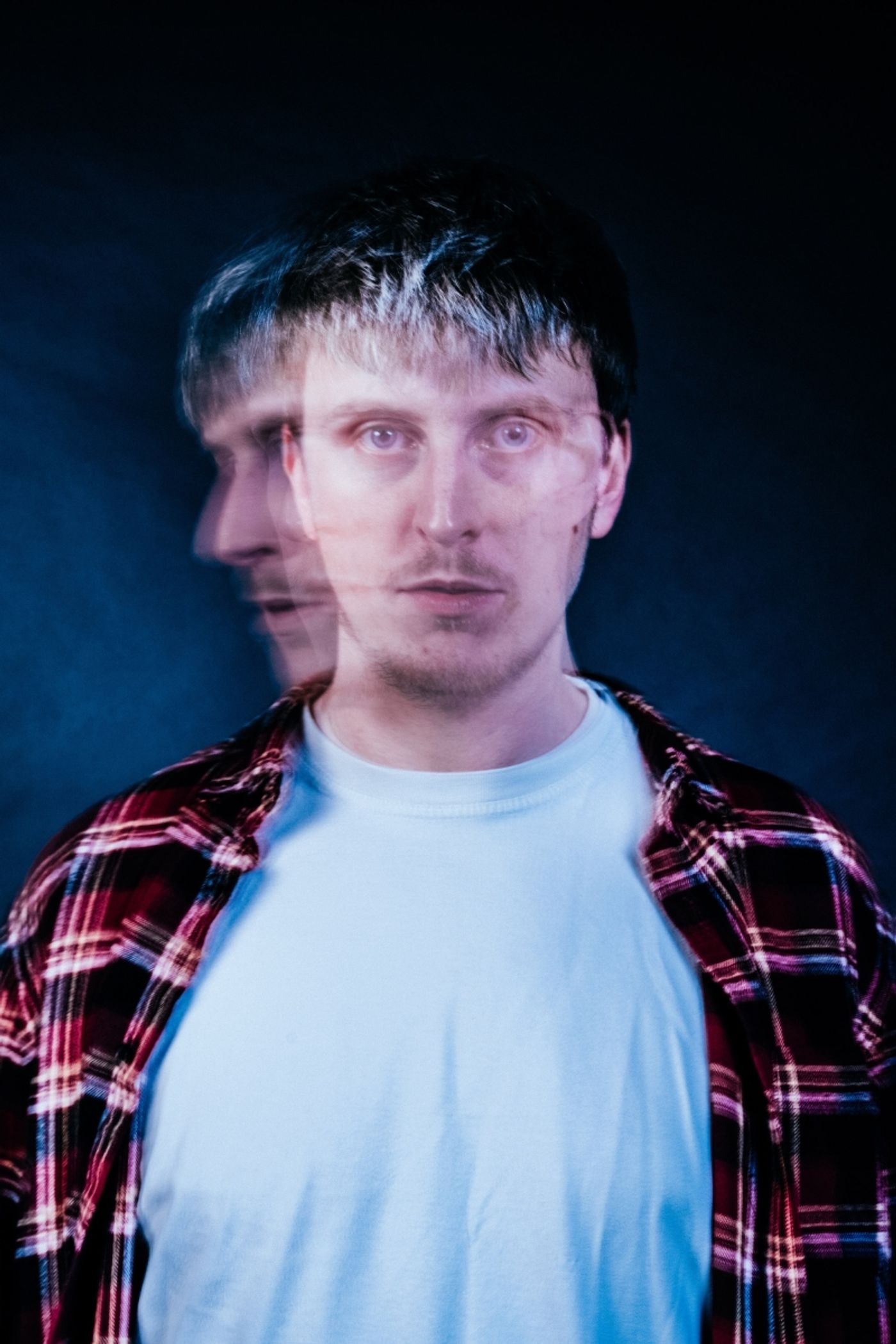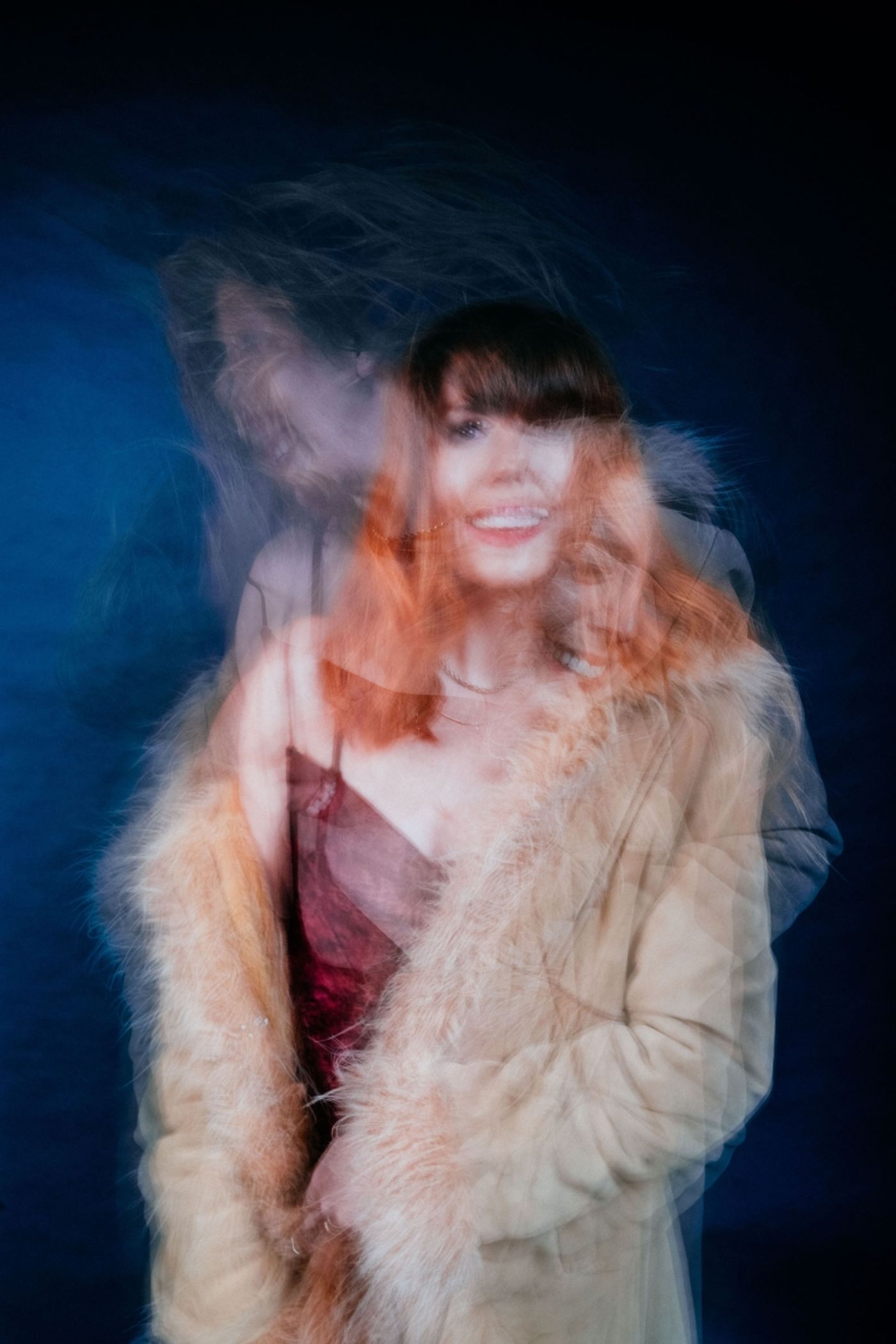Interview: 'Addiction is a Leveller' Playwright Joe White on Gen Z Sobriety, British Musicals and the Return of his Play BLACKOUT SONGS
"Paul Mescal said he’d marry me if I won an Olivier."

As the lines between emotional and alcoholic dependency blur into a whirlwind, an alcoholic couple find themselves unable to separate their relationship from their drinking. Emotional driftwood lies in the wake of their destructive hedonism. Joe White's Blackout Songs premiered at Hampstead Theatre's downstairs space in November of last year. Now with an Olivier nomination under its belt and a barrage of rave reviews from the original run, it returns to Hampstead's main space.
BroadwayWorld caught up with Joe chatting about everything from Olivier nominations, the play's inspiration and what the future holds for this up and coming writer.
"It's an unlikely dream to have." White says. "My first play was in 2018 and this is my first main space play. They are about to finish the tech. I'm like their uncle, I pop in with a bag of sweets and then leave the kids to it. But I've seen it and it looks incredible."

Photo Credit: Helen Murray
Translating the production to a new space will no doubt shift its dynamics. The downstairs space seats around a hundred. It is intimate and up close. Its emotions sit side by side with the audience. The main space seats around three times that.
"There is something Greek about it now. It stands taller. The images become bigger. The things they talk about gain more stakes...it feels intimate, but it is higher. There are some tricks. The script has a lot of things appearing and disappearing. We can play with these holes in their memory and the tricks our brains play on ourselves."
"I think it's just trying to grow to that space. It feels like it is. They seem to be excited to do it. It's a real privilege to be able to revisit something with a different space and change a few bits that didn't quite find their feet."
White knew he wanted to write about memory and love. Three close friends of his had lost their dads to Alzheimer's. He has also been through a big break up that forced him to reassess his memories.
"There was a lot of toxicity. The stories I told myself were coping mechanisms. But I was like, was I okay in that situation?"
Research led him to Korsakoff syndrome, effectively an alcohol-induced dementia that can impact anyone. That became a springboard to write about memory and love and co-dependency and toxicity.
"I lived with somebody with alcoholism when I was younger. Part of it was at university. When you are young you don't think of it in that way. You learn all the tools you have to survive someone like that. But they were brilliant. They were one of the most extraordinary people, witty, an excellent storyteller. I found out that they had died a bit later on. I had always known I was going to get that call. We had fallen out of each other's lives by that time. That started to inform the play."

Photo Credit: Helen Murray
Blackout Songs follows an unnamed couple whose relationship is indistinct from their booze fuelled antics. Their memories of themselves eventually collapse in on each other leaving them in an emotional stasis where they are unable to recall their own history. The male half of the relationship, played by a charmingly frenetic Alex Austin, is a struggling artist.
White is fascinated by the myths of Bohemian Soho. He likes stories about Hemingway, more than he does Hemingway's writing.
"It's a place where the story and the storyteller is king. People could get away with a lot because they were great raconteurs...there is something fascinating about those figures. I like to surround myself with people like that."
But White is aware of what lurks underneath the beguiling allure.
"The question is do they use alcohol to release that stuff from their head, or whether they have to use alcohol because that stuff is there and they have to live with it."
"We are addicted to the idea of that torture. We love knowing that Van Gogh cut off his own ear and drank absinthe and all that. There is something that goes hand in hand with the consumption of that pain which makes the art more beautiful or more tortured. Tennessee Williams drank so he could get through his anxiety. But someone like Francis Bacon had to be hungover to drink. It's such a bizarre way to set up a working environment."
Unpicking this myth today has a particular resonance for young people. Gen Z are embracing sobriety and consuming less alcohol and fewer drugs than previous generations. The enchanting sagas of heavy drinking and hellraising are murmurs from the past; the new generation of celebrities are squeaky clean. Blackout Songs is written without context. It could be set at any time. What matters is the world they make for themselves.
"Soho bohemia was an artificial place they make for themselves. They were on the cultural periphery and knew they could get away with what they did because nobody was watching. There probably is a difference between that lifestyle and Gen Z, but we are still in an age of excess and hedonism. But there is a thing about growing up in an age of eco-crisis and everything we have had recently. I know why people would look for an escape."

Photo Credit: Helen Murray
There is a socio-political dynamic at the core of the couple's fraught relationship. Rebecca Humphries' unnamed female character is financially secure relying on family money to fuel her addiction, while her partner lives in a squat with no family to fall back on.
"Addiction is a leveller. It wants you dead no matter where you are from or what you are made of. It's sole ambition is to kill you. The means by which you do that; it doesn't care. But addiction is not seen in the same way in a privileged environment. People in the city doing those sort of drugs, it's a part of the social fabric. But someone on an estate using a different priced drug, it's then seen as a sub-culture. There's classicism attached to that. At the end of the day it is still killing them."
Blackout Songs was nominated for Outstanding Achievement in Affiliate Theatre at this year's Olivier Awards. "Paul Mescal said he'd marry me if I won." said White.
Though unsuccessful, he has a range of new projects in the pipeline both on stage and on screen. "I love TV. I've always thought of it as different. It's always felt inaccessible, it's not something you can walk into. At worst you can put on a play with your mates. Whereas TV, how do you even begin to think about it?"
White sees television as a friend and not a foe, part of a wider shake up of theatre's identity.
"We are seeing an upturn in people who are not traditional actors. Cheryl in 2:22 a Ghost Story (I think I'm up in it next. That's the big rumour). And it's selling out. I'm not a snob about who gets to see theatre. If that's someone's first experience in a theatre, then good on them. The issue is the money and ticket prices. That's where things become elitist."
White's next project is a musical. He can't say too much, but he did divulge some details with buzzing excitement. "It's going to a West End venue. We are a new team. We are excited about it...it's got a fantastic story at its heart."
White spoke about the fact British musicals are having a cultural moment in the limelight. "Look at the astronomical success of shows like Six, Everyone's Talking about Jamie, or Standing at the Sky's Edge. These are big shows developed and made by British artists. It's an exciting time to find myself in this community...if I mainly wrote musicals now, I'd be very happy."
Blackout Songs plays at the Hampstead Theatre until 6 May with tickets starting at £10 and all seats on Saturday night performances at £10
Videos

